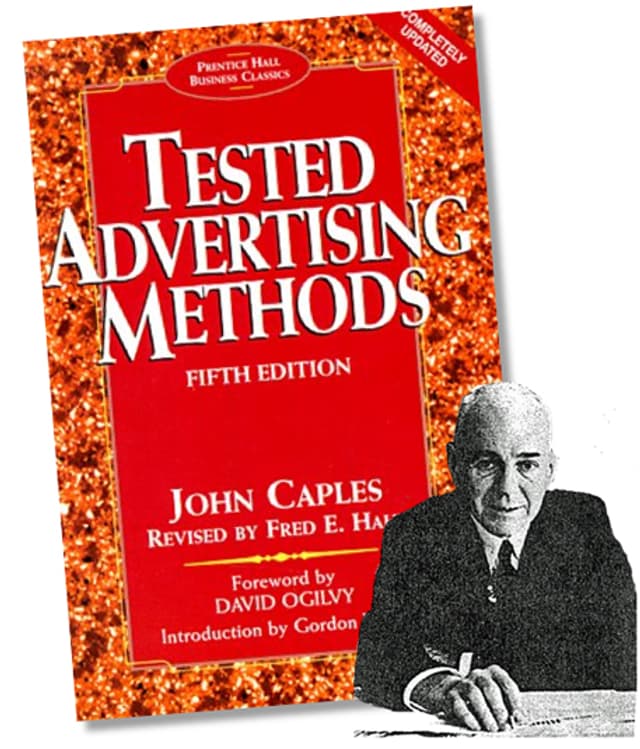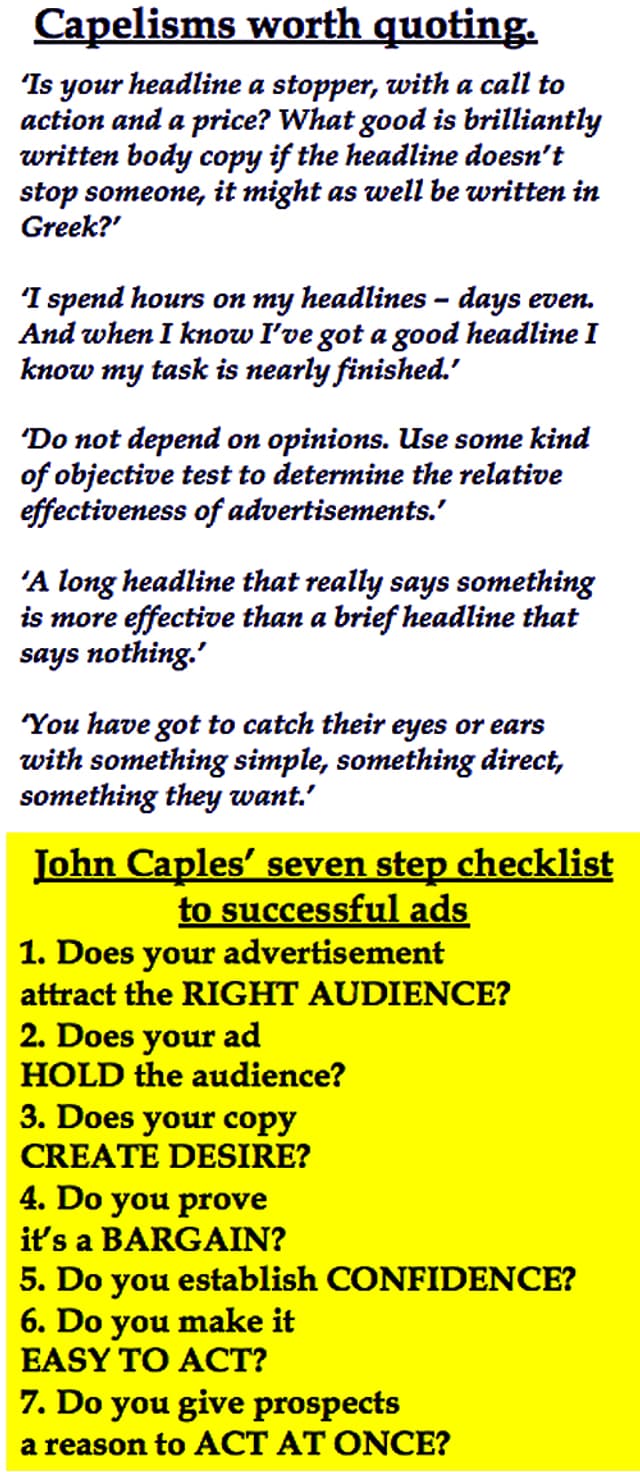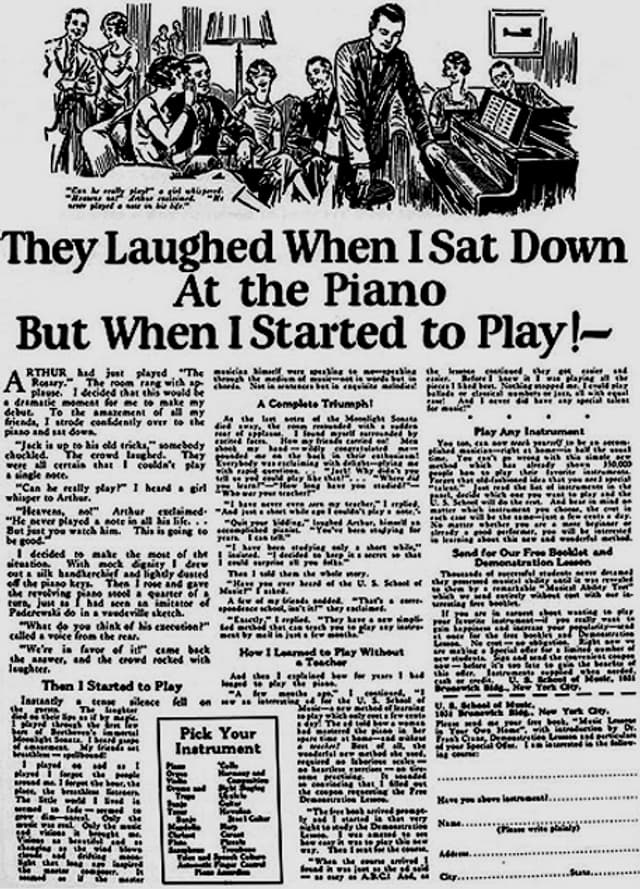Which of our ads will work best, where, when and why?
- Written by
- John Caples
- Added
- April 20, 2014
Book review

Tested Advertising Methods by John Caples
Reviewed for SOFII by Ken Burnett
Should how we recruit donors via direct marketing be guided by opinion, or fact?
An organisation I know well and respect hugely ran an ad recently that caused me to hang my head in despair. It seemed they’d forgotten everything they’ve learned from decades of careful testing. Whatever that ad cost – and it must have been several thousands of pounds – it was money wasted. The appeal and the offer were wrong, the language was wrong, the headline was wrong, the call to action was wrong. Only a fool would run such an ad.
It provided the spur I needed to write this review. I’ve wanted to recommend this classic, seminal book for years, decades even. To say its views and approaches could transform donor recruitment in the second decade of the twenty-first century is no hyperbole. It’s been doing that consistently for more than 80 years.
Trouble is, it’s dated now so few bother with it. Its language is clunky and arcane. John Caples’ text has been revised by others, changed substantially, supposedly refreshed, but at a price. Its style and examples are very American. In places it’s cheesy. Since it first made its appearance the world has undoubtedly changed in many ways, except perhaps in those that really matter most to the serious direct marketer.
For the principles that underpin this book are solid gold. It contains the germs of true genius and it’s there for you to learn from if you have the wit and application to dig into it and the strength of character to adapt its lessons to your needs.
In a meeting room in a far corner of the world the leadership of an international NGO is gathered to review and decide their strategy. Founded on a proud tradition they aspire to be paragons of best management practice and accountability, rigorous inspirers and relentless innovators, brave articulators of a lofty vision, sound and solid because they’re so well resourced. What they don’t ever need to doubt is that years earlier the foundations of their growth and strength were built upon tested advertising methods that enabled their organisation to grow and flourish while others struggled merely to survive.
In the mid 1920s legendary direct mail copywriter John Caples penned an advertising campaign in a style that he called ‘the first- person story appeal’, for the US School of Music. The headline, ‘They Laughed When I Sat Down at the Piano. But When I Started to Play!’, is perhaps one of the most effective as well as one of the most famous advertising headlines of all time. It’s a story style that Caples honed and recycled over decades and it’s still in use today promoting a range of products and propositions from hair restorer and mail-order carpets to personal hygiene and saving the environment.

Caples famously said, ‘I have seen one mail-order advertisement actually sell not twice as much, not three times as much but nineteen and a half times as much merchandise as another ad for the same product. Both were run in the same publication. Both had photographic illustrations. Both had carefully written copy. The difference was that one used the right appeal and the other used the wrong appeal.’
Is that worth knowing? Or is it something best left to gut feeling, prejudice or instinct?
Caples made his considerable reputation on the difference. He was appalled at the number of advertising decisions based solely and almost invariably wrongly on uninformed opinion. Any agency types who’ve sat through their share of creative pitches will tell you that at these affairs the majority of client comments on which ads they think will work best and which won’t will be based on opinion, not fact. Few clients know much about testing and even fewer can keep their opinions to themselves.
For sure these days you’ll meet many fundraisers who’ve never heard of John Caples and are never likely to find him either. It doesn’t bother them that they don’t know the most important component of the advertising that their charity puts out or the extra impact a different offer or appeal might have.
Thankfully though there are just as many eager young entrants to our profession who do want to learn what will make most difference. The challenge is to make sure that their leaders understand and appreciate this stuff enough to make sure that their staff get it too, in sufficient breadth and depth to keep this vital knowledge and its procedures alive.
So if you’re looking to get your boss something inspirational and improving for Christmas, Tested Advertising Methods could be just the thing.
Is this book worth bothering with now? Well, if more fundraisers were familiar with its principles more charities would be more effective. Donors would be cheaper to recruit and would stay longer. There’d be more money for us to invest in retention, which is what we really need to do.
Yes, it’s well worth bothering with now.
© Ken Burnett 2013
Ken Burnett has never won a Caples award, though he has tested and refined advertising results for several organisations so successfully that they’ve grown enough for fundraisers the world over to seek his advice on effective communication over more than 35 years. The cornerstone of his career he ascribes to the subject matter of this little book – tested advertising methods.

About Ken Burnett
 Ken Burnett is author ofRelationship Fundraising and other books including The Tiny Essentials of an Effective Volunteer Board (The White Lion Press Limited, London, UK) and The Zen of Fundraising, (Jossey-Bass Inc, San Francisco, USA). Ken is also SOFII’s managing trustee.
Ken Burnett is author ofRelationship Fundraising and other books including The Tiny Essentials of an Effective Volunteer Board (The White Lion Press Limited, London, UK) and The Zen of Fundraising, (Jossey-Bass Inc, San Francisco, USA). Ken is also SOFII’s managing trustee.

















